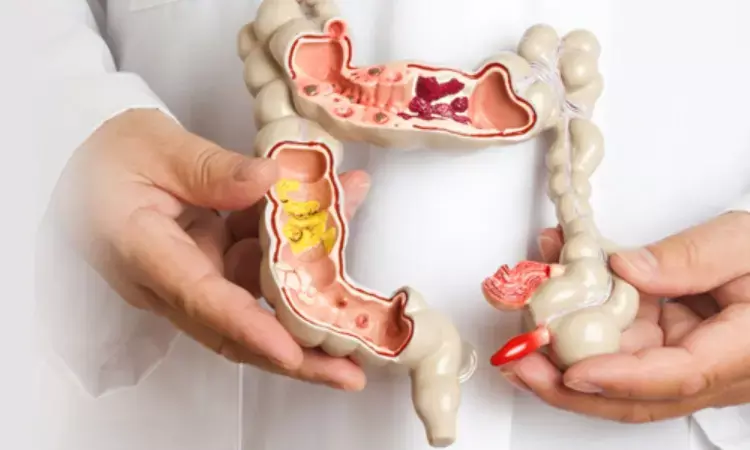- Home
- Medical news & Guidelines
- Anesthesiology
- Cardiology and CTVS
- Critical Care
- Dentistry
- Dermatology
- Diabetes and Endocrinology
- ENT
- Gastroenterology
- Medicine
- Nephrology
- Neurology
- Obstretics-Gynaecology
- Oncology
- Ophthalmology
- Orthopaedics
- Pediatrics-Neonatology
- Psychiatry
- Pulmonology
- Radiology
- Surgery
- Urology
- Laboratory Medicine
- Diet
- Nursing
- Paramedical
- Physiotherapy
- Health news
- Fact Check
- Bone Health Fact Check
- Brain Health Fact Check
- Cancer Related Fact Check
- Child Care Fact Check
- Dental and oral health fact check
- Diabetes and metabolic health fact check
- Diet and Nutrition Fact Check
- Eye and ENT Care Fact Check
- Fitness fact check
- Gut health fact check
- Heart health fact check
- Kidney health fact check
- Medical education fact check
- Men's health fact check
- Respiratory fact check
- Skin and hair care fact check
- Vaccine and Immunization fact check
- Women's health fact check
- AYUSH
- State News
- Andaman and Nicobar Islands
- Andhra Pradesh
- Arunachal Pradesh
- Assam
- Bihar
- Chandigarh
- Chattisgarh
- Dadra and Nagar Haveli
- Daman and Diu
- Delhi
- Goa
- Gujarat
- Haryana
- Himachal Pradesh
- Jammu & Kashmir
- Jharkhand
- Karnataka
- Kerala
- Ladakh
- Lakshadweep
- Madhya Pradesh
- Maharashtra
- Manipur
- Meghalaya
- Mizoram
- Nagaland
- Odisha
- Puducherry
- Punjab
- Rajasthan
- Sikkim
- Tamil Nadu
- Telangana
- Tripura
- Uttar Pradesh
- Uttrakhand
- West Bengal
- Medical Education
- Industry
Desmopressin before colonoscopy can lead to hyponatremia: BMC Case Report

A new case study published in BMC Nephrology suggests Clinicians be aware that the use of desmopressin, a significant risk factor for hyponatremia in addition to the use of a few well-known drugs and the presence of comorbidities.
Preparing the bowel for a colonoscopy is often regarded as a safe procedure. During bowel preparation, hyponatremia is a problem that has been documented in the literature. The majority of people who experience severe symptoms of hyponatremia are elderly and have other medical conditions including chronic kidney disease, hypothyroidism, or adrenal insufficiency. This potentially lethal complication, nevertheless, can also result from other processes and situations.
This case report by Ting-Hsuan Chiang and colleagues demonstrates a rare occurrence of a patient who experienced an acute hyponatremia-related seizure prior to a colonoscopy without experiencing any well-known risk factors. The usage of desmopressin was thought to have led to this significant consequence, which was later diagnosed as water intoxication.
A colonoscopy was scheduled for a 72-year-old man after a colonic lesion was identified accidentally during a regular health check two months before. The patient was aware, oriented, and denied any discomfort during the morning visit on the day of the colonoscopy. However, during anesthetic evaluation before the surgery, he was discovered to be sluggish and confused. The patient experienced a tonic-clonic seizure that lasted roughly one minute. He was sent to the critical care unit for additional assessment after a quick intubation.
Based on his medical history, the patient had benign prostate hyperplasia with considerable complaints of urine frequency and nocturia. Brain computed CT revealed no evidence of a space-occupying lesion or hemorrhage. According to the patient, he was concerned before the colonoscopy and wanted to make sure he had enough stool preparation by drinking a lot of water in addition to his bowel preparation routine. On the morning of the planned assessment, he reported a total water consumption of 5.5 L. With his medication history, high water intake, and low urine osmolality, the patient's severe hyponatremia was thought to be caused by desmopressin-induced water intoxication.
In conclusion, acute hyponatremia as a result of bowel preparation is an uncommon but significant consequence that should not be overlooked. Elevated serum ADH levels are frequently important in the setting of water intoxication. Ensuring enough electrolyte intake during bowel preparation and thorough patient education are especially important for people who are prone to water intoxication.
Reference:
Chiang, T.-H., Tan, J.-H., Chang, C.-C., & Fang, K.-C. (2022). Seizure from water intoxication following bowel preparation: a case report. In BMC Nephrology (Vol. 23, Issue 1). Springer Science and Business Media LLC. https://doi.org/10.1186/s12882-022-03035-8
Neuroscience Masters graduate
Jacinthlyn Sylvia, a Neuroscience Master's graduate from Chennai has worked extensively in deciphering the neurobiology of cognition and motor control in aging. She also has spread-out exposure to Neurosurgery from her Bachelor’s. She is currently involved in active Neuro-Oncology research. She is an upcoming neuroscientist with a fiery passion for writing. Her news cover at Medical Dialogues feature recent discoveries and updates from the healthcare and biomedical research fields. She can be reached at editorial@medicaldialogues.in
Dr Kamal Kant Kohli-MBBS, DTCD- a chest specialist with more than 30 years of practice and a flair for writing clinical articles, Dr Kamal Kant Kohli joined Medical Dialogues as a Chief Editor of Medical News. Besides writing articles, as an editor, he proofreads and verifies all the medical content published on Medical Dialogues including those coming from journals, studies,medical conferences,guidelines etc. Email: drkohli@medicaldialogues.in. Contact no. 011-43720751


